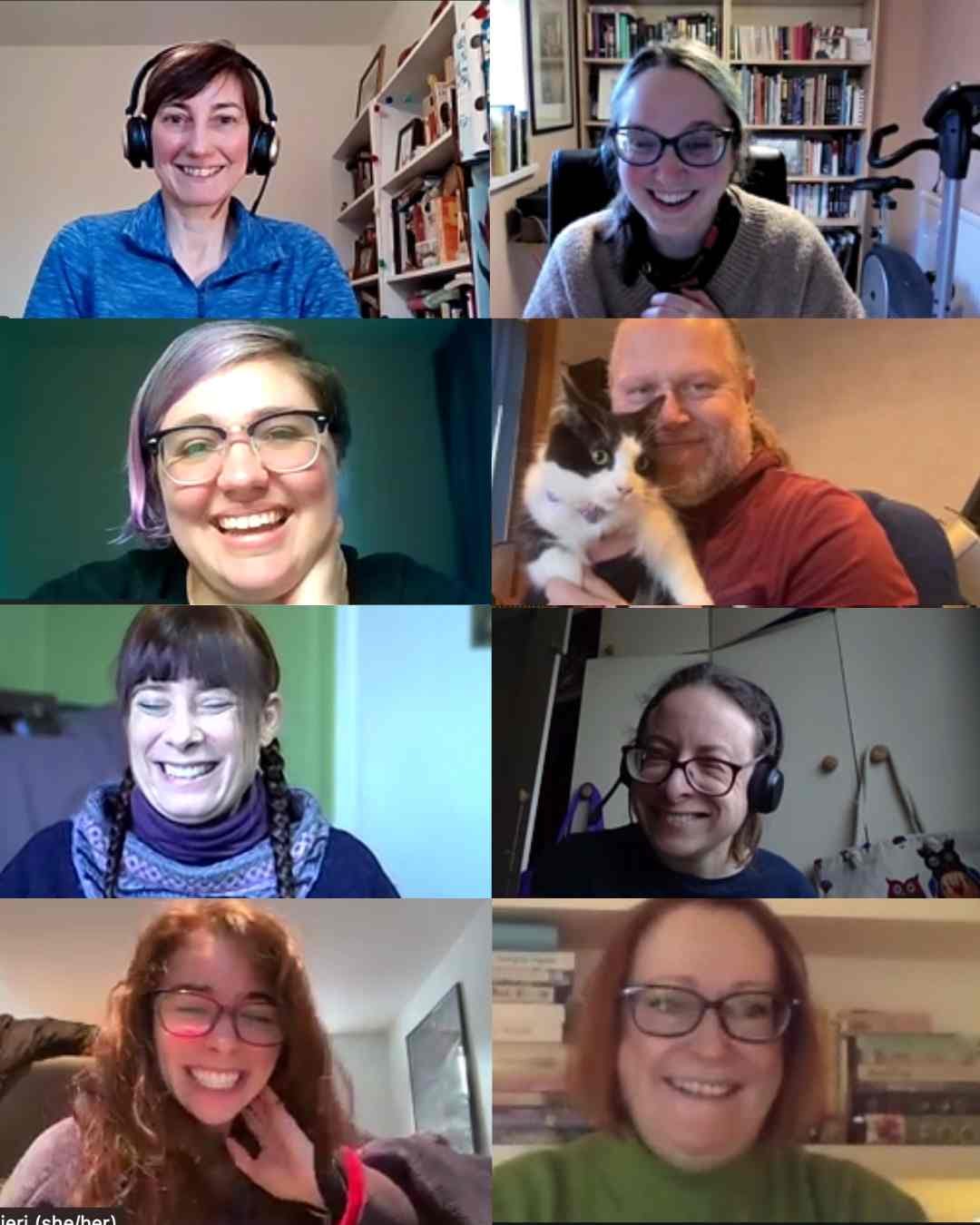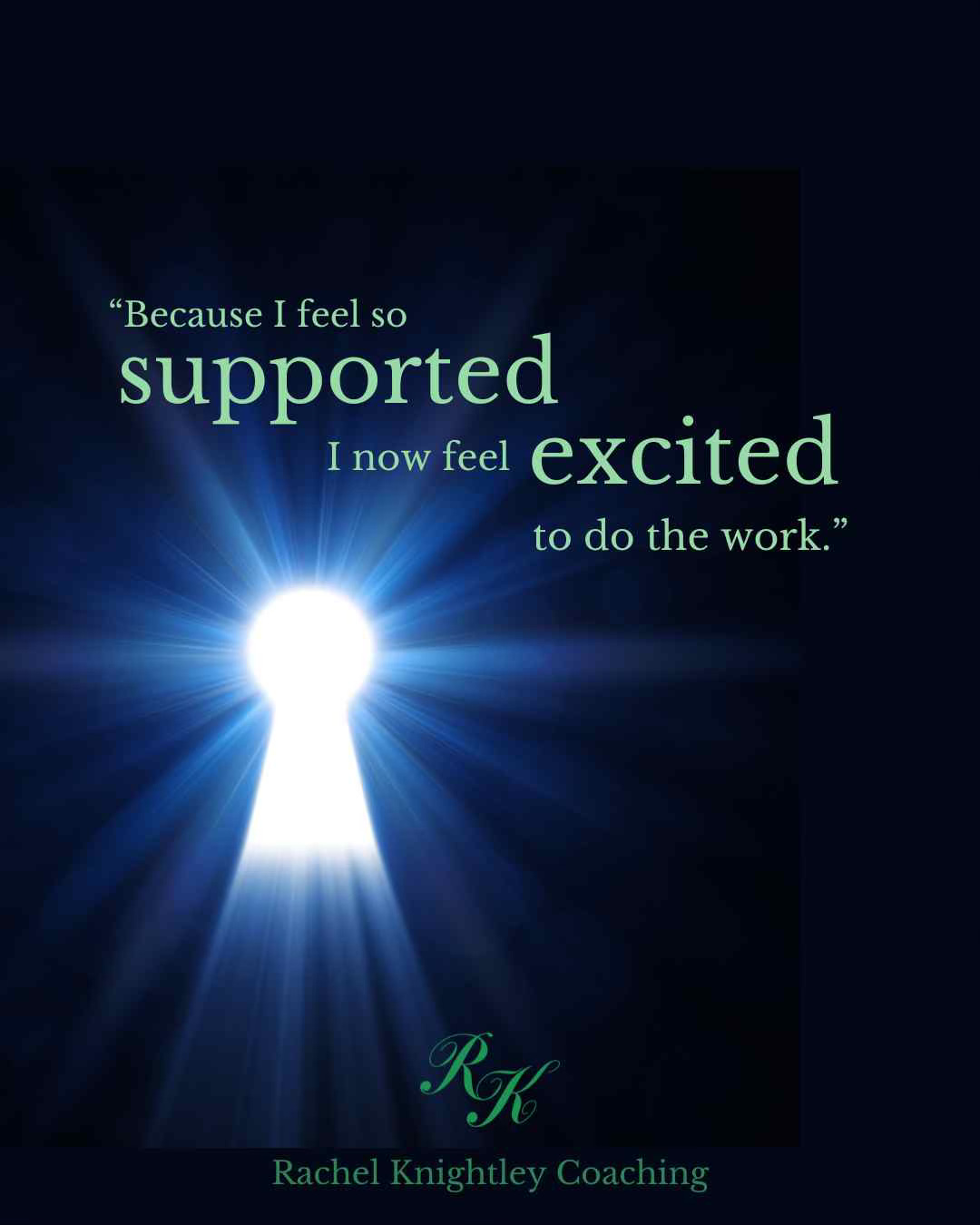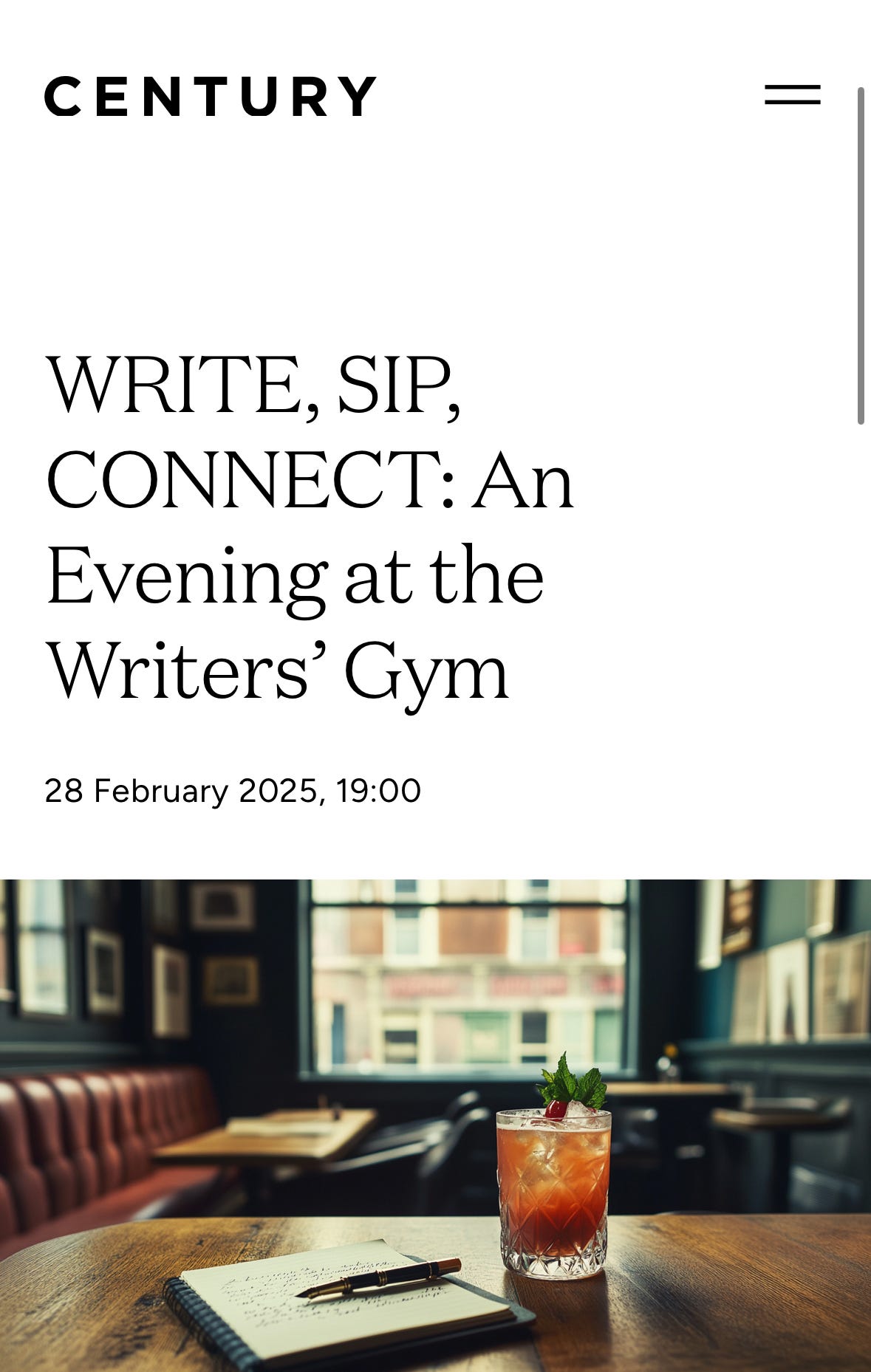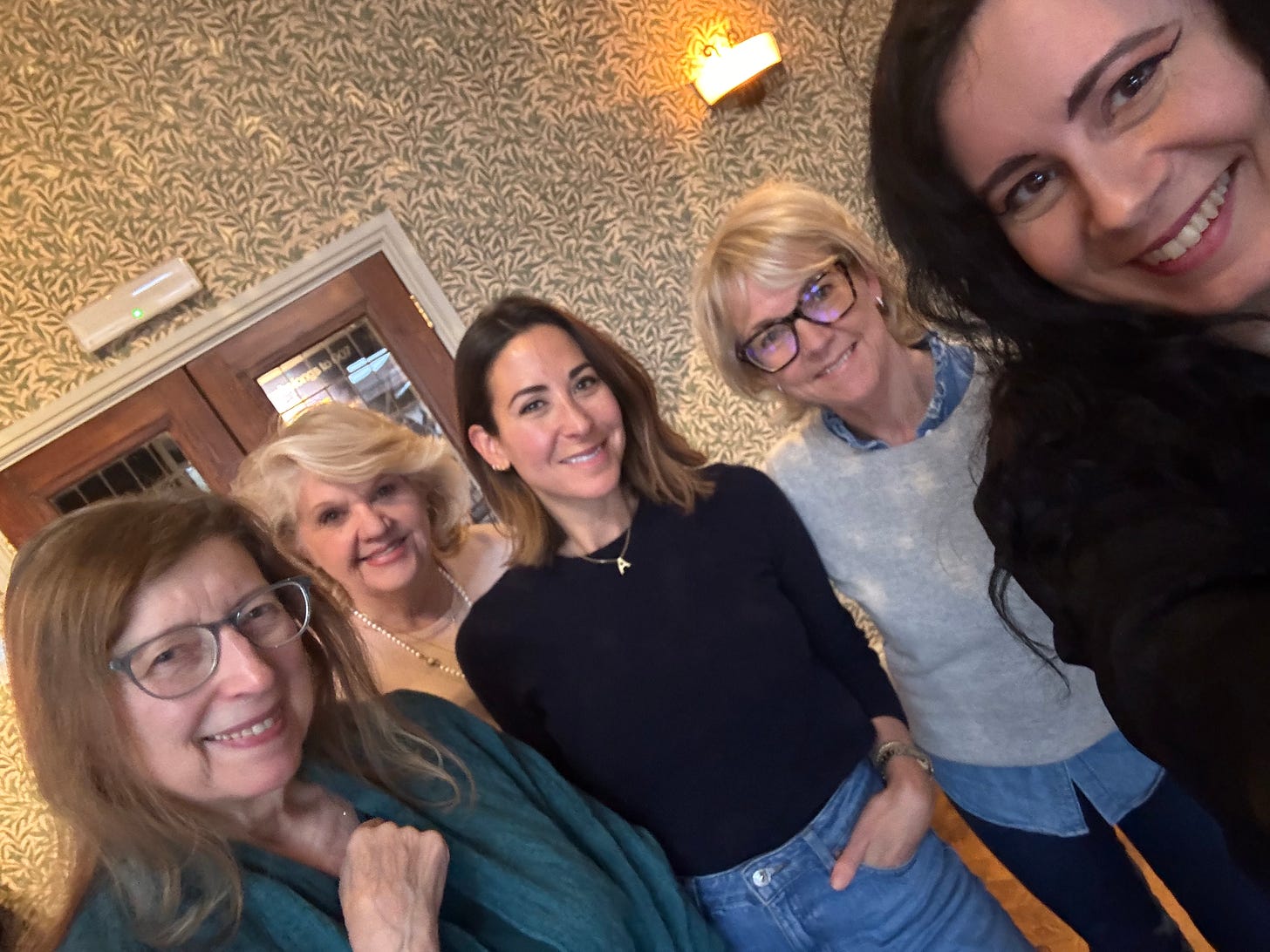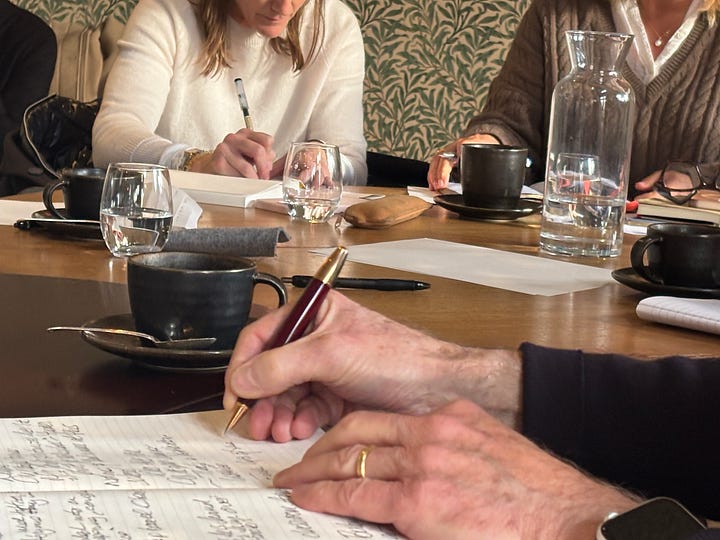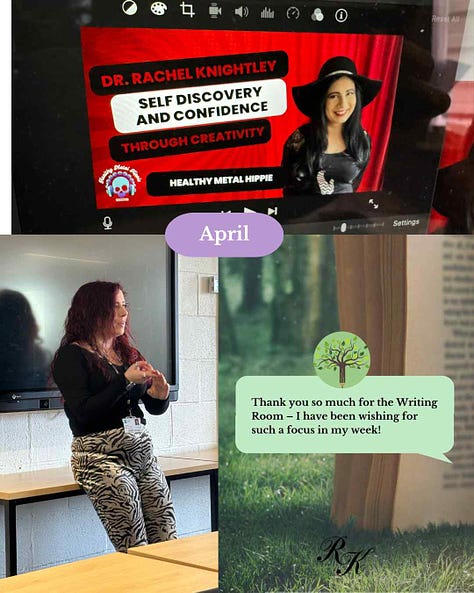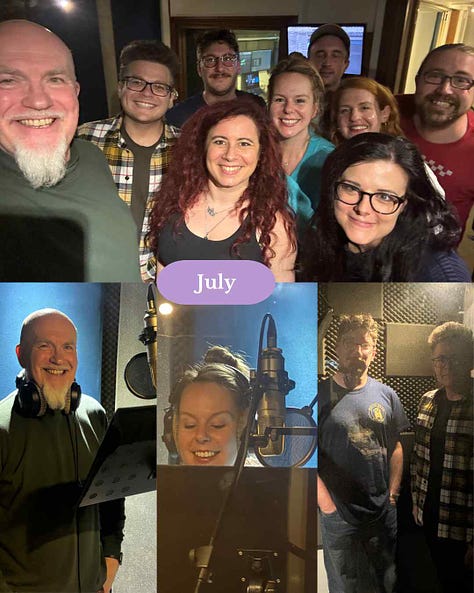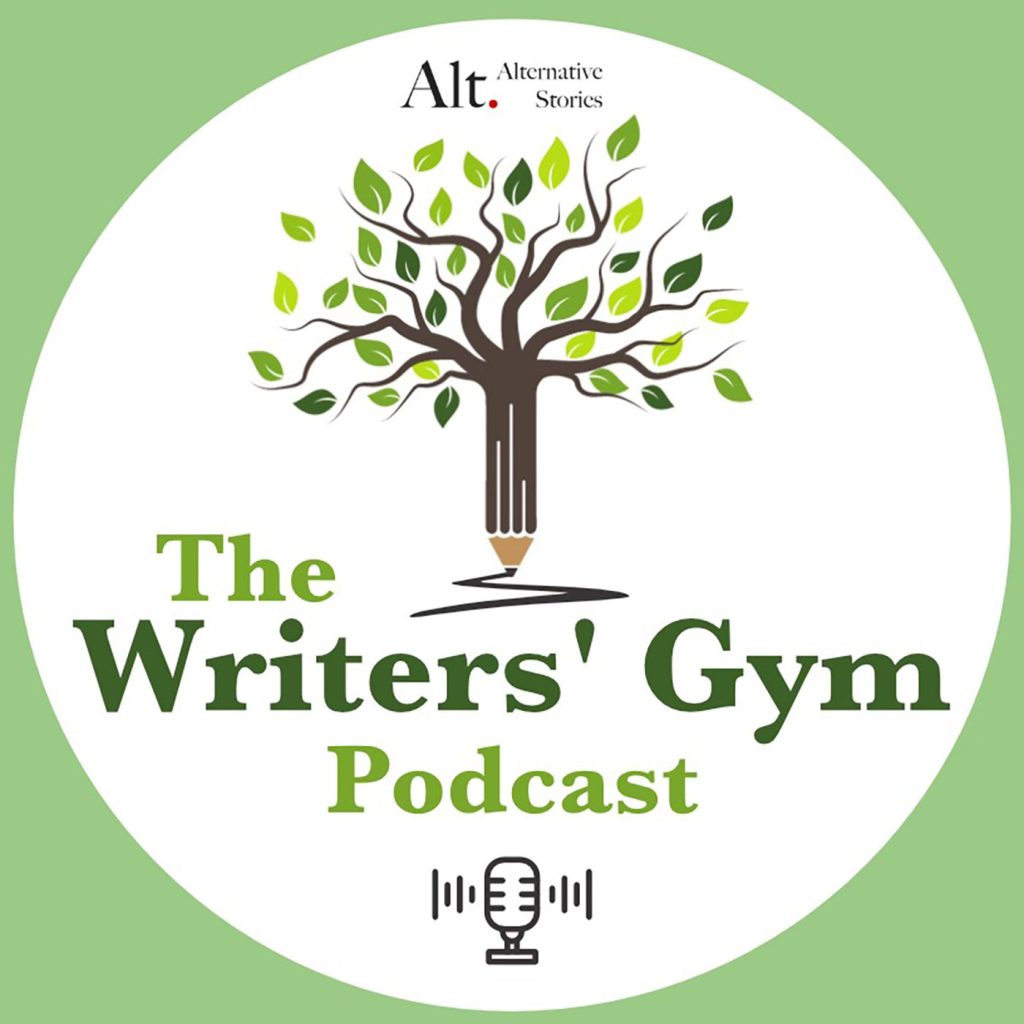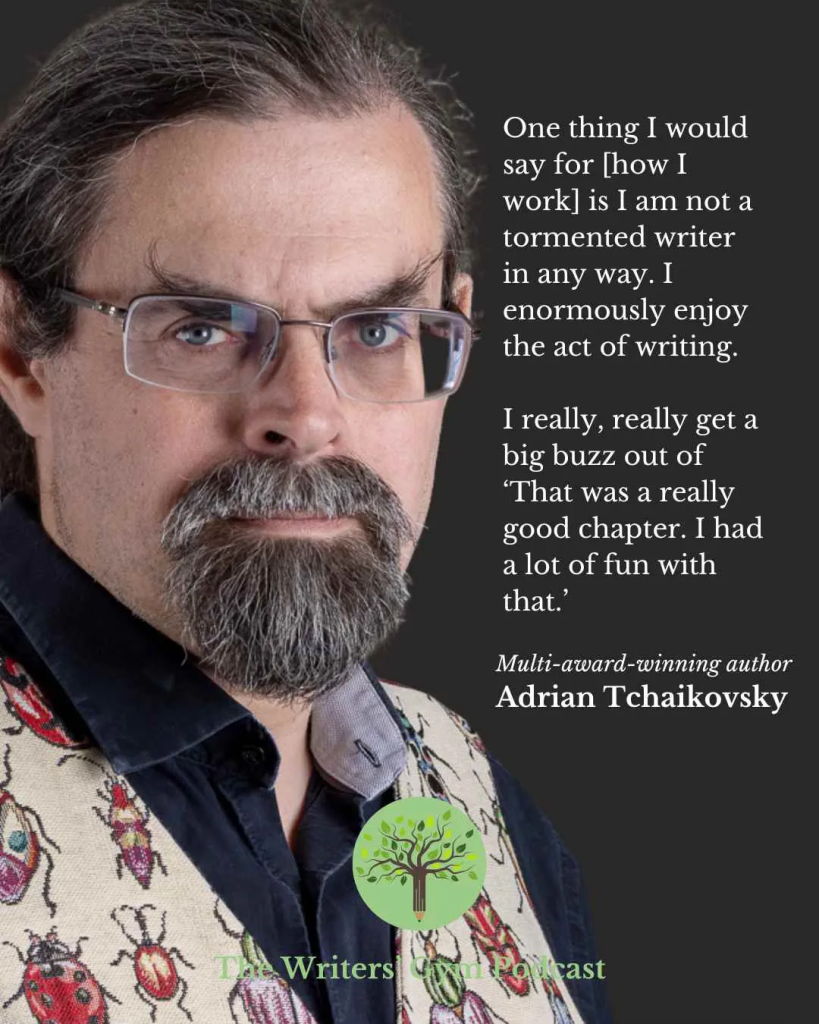
Every author you’ll hear on the new series of the Writers’ Gym podcast will say it. We don’t always come to it first in the conversation, but at some point that author will say, sometimes knowingly and sometimes like it’s a complete surprise to both of us, will say, ‘You know what? It’s a bit like going to the gym.’
The phrasing will change, but the sense of having just discovered it won’t. I founded the Writers’ Gym and I still rediscover it all the time: the surprise of Wow, what if it’s not meant to just feel easy every time? What if I simply need to keep taking the small steps, growing strength, building resilience? Showing up? What if it’s that simple?
Simple, of course, doesn’t mean easy. It is simple. It isn’t easy.
But it’s possible.
And it’s wonderful.
Healthy writing lives are what the Writers’ Gym podcast has always been about. Returning this Wednesday with my interview with Adrian Tchaikovsky and continuing over the next two months with bestselling and award-winning writers from novelist to poets and screenwriters, JD Barker, Prano Bailey-Bond, Rosie Garland, Gabrielle Kent, Kim Newman and Aliya Whiteley all talk about the importance of your unique curiosity.
The exercises and the reps that mean the fuel, the rituals and, yes, the coffee that turn inspiration to perspiration… Because it is possible – always – and only you can write what you can write.
Our different conversations are all about a writing life meaning relishing the opportunity of exploring what makes you uniquely you. All share the exercises and the reps that mean the fuel, the rituals and, yes, the coffee (Adrian claims it can be any coffee) that mean turning inspiration to perspiration: doing the work and showing up sometimes before our confidence or mood joins us. Because it is possible – always – and only you can write what you can write.
Which doesn’t mean you have to be on your own.
Every day this week is an opportunity to bring your word-count for a workout. The Writing Room is online today from 11am to 1pm, a silent space (until the last ten minutes when we chat) to enjoy writing time in the company of other writers. In the evening, join me for Fiction and Memoir Writing at Riverside Studios. Tuesday brings the third in Chris Gregory’s series of Writing Audio Drama workshops. Wednesday is Coffee & Creativity, Thursday is members’ event Writing Room Extra and on Friday evening I’m at The Century Club on Shaftesbury Avenue, with an in-person writing workout and creative confidence boosting discussion to apply creative confidence to what we want to create in art and in life: Write, Sip, Create at the Century Club, 28 February 7-8.30pm
Scroll down to book, or write to me.

The Writers’ Gym is part of Rachel Knightley Coaching: creative confidence for life, work and art. www.rachelknightley.com
Come and Write This Week…
Coming up next month: Writing Feedback: How to Give It, How to Take It
The Writing Room | 11am-1pm Monday 24 February
Hosted this week by Writers’ Gym member and office manager Bella Barbieri this week while I have a heath appointment (thank you, Bella!) and free for everyone on my mailing list (if you’re reading this, that’s you!). No expectations, no readings, just an open chat box and ten minutes’ (totally optional) chat together at the end. Click here.
Riverscribes: Fiction and Memoir | 7-8.30pm Monday 24 February
All the inspiration, support and techniques you need to weave initial ideas into fully realised stories. Whether you’re working on a story, novel or non-fiction, want some creative inspiration, or whether you’re intrigued by the idea of writing and want a creative outlet, this is the place to discover and develop your ideas and your voice. Click here.
Writing Audio Drama: Writing in Sound | 1-2.30pm Tuesday 25 February
Audio drama has enjoyed a huge growth in popularity over the last few years. Major players are commissioning their own original dramas and there’s never been a better time to create your audio play. With producer and independent supplier to the BBC Chris Gregory, develop the skills to write your drama and the confidence to pitch it. Click here.
Coffee & Creativity | 1-2.30pm Wednesday 26 February
Quality writing time and excellent company! Grab a coffee and have a mid-week chat, a write and then another chat with your fellow creatives. Free for members: type your discount code where indicated. Click here.
Writing Room EXTRA | 3-5pm Thursday 27 February
Members only: please check Voxer messages.
Cocktails & Creativity at the Century Club | 7-8.30pm Friday 28 February
Join us for an evening workshop with cocktails, where creativity meets confidence in a unique blend of writing exercises, discussion, and networking. Whether you’re an experienced writer, just starting out, or simply curious about the craft, this event is designed to boost your word count, confidence, and connections—all in a relaxed and welcoming space. Click here.
You don’t have to be a member to join a Writers’ Gym session: just sign up. But if you’d like to access our weekly programme for free, and receive 30% off all our other events, email thewritersgym@rachelknightley.com.
If you’re not in the UK, find your timezone here.

